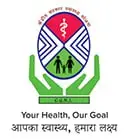Approximately one in ten patients who have had one kidney stone are at risk for developing another in the future. Kidney stones develop when certain chemicals in urine get concentrated enough to form crystals. The crystals form into bigger masses (stones) that cannot pass through the urinary tract. When a stone becomes stuck someplace and obstructs the passage of urine, it causes pain. Heredity also plays a role in forming the stones so there is no guaranteed way to prevent stones from forming. But you can reduce your risk by modifying your diet. Here are some preventions that you can take.
Fluid intake:
Increase your fluid intake to two to three liters each day, depending on your activity level and sweat rate. Although water is the best option, citrus beverages like lemonade and orange juice have also been proven to help avoid kidney stones.
Limit salt
Limit your daily salt/sodium intake to no more than 2,300 mg. Sodium causes the kidneys to excrete more calcium, increasing the risk of kidney stones. Reading food labels might help you keep track of your sodium intake.
Limit calcium supplement
Regulate calcium supplementation, which can affect calcium oxalate stone development. Calcium from food cannot cause stones, but some studies have suggested that supplements, if not taken with meals, can affect the formation of some stones. If you have a history of calcium oxalate stones, your doctor can advise you on the best calcium levels for you.
Limit animal protein
Limit your daily intake of animal protein to no more than six ounces. Meats and other animal proteins, such as eggs and fish, contain purines, which can promote the production of uric acid stones. Reducing your meat diet can lower your chance of uric acid stones, especially if you already have them.
Avoid oxalate-rich food
Foods high in oxalate should be avoided. People who are sensitive to calcium oxalate stones should avoid oxalate-rich foods such as beets, spinach, many types of berries, sweet potatoes, soy, almonds, chocolate, brewed tea, and colas.
Limit Vitamin C
According to several research, those who use large amounts of vitamin C in the form of supplements are at a slightly increased risk of developing kidney stones. This could be due to the body’s breakdown of vitamin C to oxalate.
Consult a physician for more individualized advice. You can also advice from a dietician If you are prone to developing kidney stones, they may help you identify foods to limit or avoid.
Experts from Srivastava MRI & Imagine Centre (Best Ultrasound Centre in Delhi) recommend a metabolic evaluation which includes Ultrasound for kidney stones, stone analysis, blood, and urinary testing. This evaluation can identify the source of the problem in more than 90 percent of patients and can help us determine how you might be able to prevent future kidney stones.



